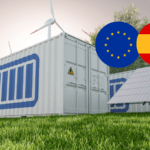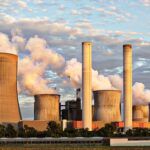Last July 8, the European Commission reaffirms its commitment to supporting the development of a hydrogen market by introducing a comprehensive greenhouse gas emission methodology for low-carbon hydrogen and fuels, as set out in the Hydrogen and Gas Market Directive. This methodology complements the existing ones on renewable hydrogen and renewable fuels of non-biological origin (RFNBOs), completing the EU’s regulatory framework for hydrogen.
This is a pivotal step that provides a clear regulatory framework, unlocking investment certainty and accelerating the scale-up of clean hydrogen production across Europe.
As underlined in the Clean Industrial Deal, legal certainty and coherence are pivotal to foster investments and allow producers to scale up, ultimately accelerating the growth of the sector. Low-carbon hydrogen will support efforts to decarbonise sectors where electrification is currently not a viable option, such as aviation, shipping and certain industrial processes. This initiative will contribute to the achievement of the EU’s climate neutrality objective for 2050, while ensuring that the European hydrogen sector and the European industry keep their leadership role and competitiveness.
To be considered low carbon, hydrogen and related fuels will need to reach a threshold of 70% greenhouse gas emission savings compared to the use of unabated fossil fuels. This means that low-carbon hydrogen can be produced in various ways, for instance using natural gas with carbon capture, utilisation and storage (CCUS) – a technology that prevents emissions from the process of producing hydrogen-, as well as from low-carbon electricity sources. The methodology recognises the diversity of energy mixes across the Member States offering a flexible and pragmatic framework. The delegated act does not establish the share of renewable energy that can be accounted for hydrogen produced from electricity. This aspect is set out in the Renewable Energy Directive taking an annual average approach. The Commission is ready to address this when reviewing the Renewable Energy Directive. At the same time, the Commission is stepping up its efforts to facilitate a pragmatic implementation of the Methane Regulation, with a focus on practical solutions that are simple and achieve the objectives of tackling methane emissions.
Looking ahead, the European Commission will assess the impact of the introduction of alternative pathways on the energy system and emission savings and the need of maintaining a level playing field with sourcing fully renewable electricity. In 2026, it will launch a public consultation on a draft methodology on the use of Power Purchase Agreements (PPAs) for nuclear energy, enhancing clarity for the production of low-carbon hydrogen from direct nuclear sources.
Next steps
Following last July 8’s adoption, the Act will now be transmitted to the European Parliament and the Council, which have 2 months to scrutinise them and to either accept or reject the proposals. At their request, the scrutiny period can be extended by 2 months. There is no possibility for the Parliament or Council to amend the proposals.
Background
The Hydrogen and Gas Market Directive sets out a fully-fledged certification framework for low-carbon fuels, complementing the rules for renewable fuels set out in the Renewable Energy Directive. Article 9 of the Directive requires the Commission to adopt a methodology for evaluating the emission savings of low-carbon fuels, by 5 August 2025 at the latest.
Today’s adoption follows an intense process of consultation with key stakeholders and the Member States. A first draft of the Delegated Act was published for feedback from 27 September to 25 October 2024. The Delegated Act was then discussed with Member States’ experts twice in the Expert Group on Renewable and Low-Carbon Fuels, on 7 November 2024 and 19 May 2025.
Earlier this month, the Commission also launched the Hydrogen Mechanism under the new EU Energy and Raw Materials Platform in a strategic move to strengthen the competitiveness of Europe’s industry and leverage the Union market towards more security of supply, diversification and decarbonisation.
More information: European Commission







Leave a Reply